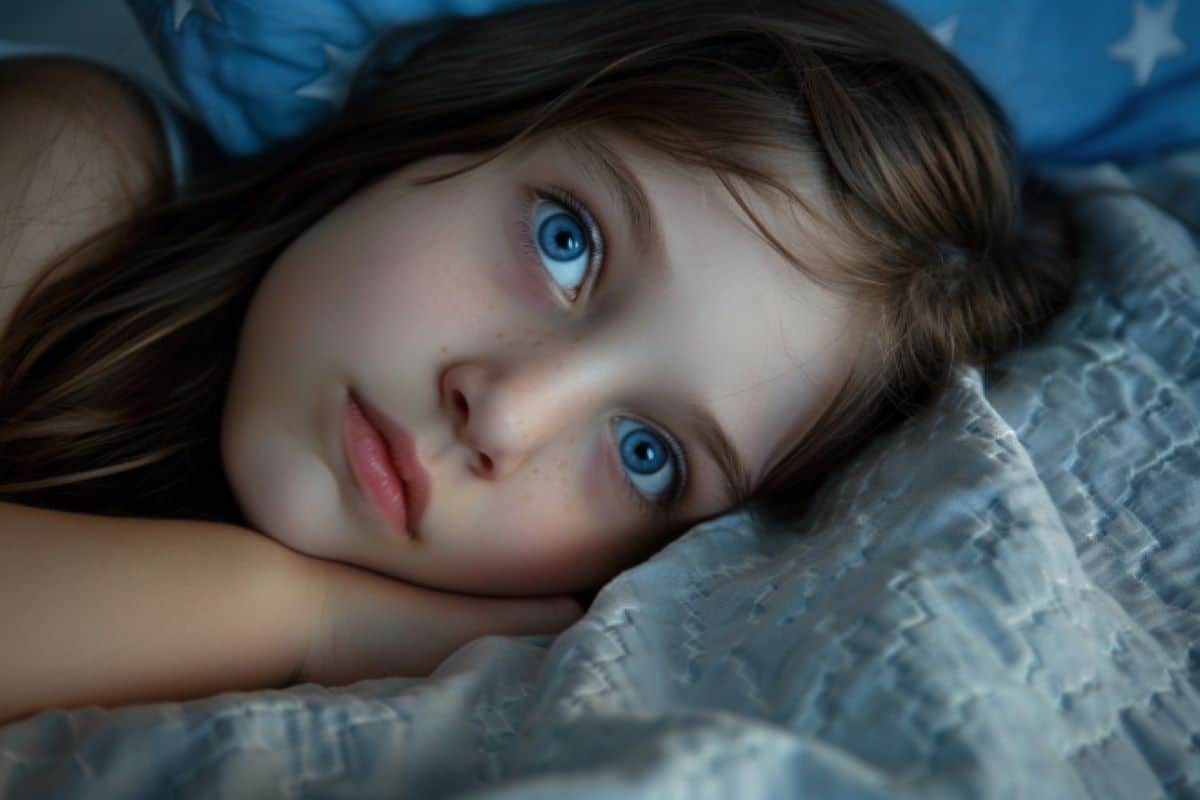Summary: Researchers found genetic associations between sleep patterns and neuropsychiatric conditions like autism, ADHD, and bipolar disorder. Polygenic risk score analysis revealed that autism and schizophrenia link to evening chronotype, while ADHD, schizophrenia, and bipolar disorder link to insomnia. These insights may lead to new therapies for sleep disturbances in these patients.
Key Facts:
- Autism and schizophrenia are genetically linked to an evening chronotype.
- ADHD, schizophrenia, and bipolar disorder are genetically linked to insomnia.
- Genetic insights could inform new treatments for sleep disturbances in neuropsychiatric conditions.
Source: European Society of Human Genetics
Disturbed sleep is very common in almost all neuropsychiatric and neurodevelopmental conditions (NDPCs), such as autism, attention deficit and hyperactivity disorder, schizophrenia, and bipolar disorder.
While it is understandable that the symptoms of such conditions would lead to sleep disruption and also that sleep disruption would worsen symptoms in these conditions, Irish researchers have now found new genetic associations between some of these conditions and chronotype, the behavioural manifestations of an individual’s circadian rhythm (“night owl” or “early bird)”.
These findings may point the way to the development of new therapies for patients.
Presenting the results of the study to the annual conference of the European Society of Human Genetics today (Tuesday), Dr Laura Fahey, a postdoctoral researcher in the Family Genomics Research Group, Maynooth University, Republic of Ireland, will say that sleep disturbances are known to predate the onset of major depressive disorder and bipolar disorder, and that polygenic score analysis can identity whether these conditions and sleep traits share genetic variation.
The researchers therefore used polygenic risk score analysis on large-scale genetic studies of NDPCs to test their ability to predict chronotype and insomnia in over 409,000 participants in the UK Biobank.
Their findings strengthen known genetic correlation results in that they show that polygenic scores for autism and schizophrenia are associated with an evening chronotype, while polygenic scores for attention-deficit/hyperactivity disorder, schizophrenia, and bipolar disorder are associated with insomnia.
“We also identified novel associations between bipolar disorder and chronotype, as well as insomnia and autism,” says Dr Fahey.
“These are interesting insights into the genetic basis of sleep disruption, and may open new research avenues for the treatment of sleep and circadian rhythm disturbances in these patients.”
“The finding that shared genetic variation between bipolar disorder and chronotype was enriched (overrepresented) in a pathway* called NRF2-KEAP1 was interesting to us, as the NRF2 pathway was previously linked to the pathology of bipolar disorder and schizophrenia.
Additionally, NRF2 has previously been shown to be rhythmically regulated by circadian clock genes.
“However, it was surprising that there was no enrichment of shared genetic variation in any biological pathway for the other sleep-NDPC phenotype pairs investigated. This was particularly surprising for ADHD and insomnia, as we found these two phenotypes to have the strongest genome-wide correlation.
“A reason for this could be that the shared genetic variation is highly polygenic, affecting all biological pathways somewhat equally. It could also be that this shared genetic variation is enriched in cell- or tissue-specific pathways, which we did not explore”, Dr Fahey says.
The researchers also intend to test polygenic scores from more diverse populations, the UK Biobank data used in their study being on individuals of white British ancestry.
“We need to know whether this work can be applied to other population groups,” says Dr Fahey, “since we hope that our work may contribute to the development of predictive and preventive interventions in the future.”.
Further research could also investigate the impact of the genetic variation found in the biological pathways identified by the scientists as influencing circadian rhythm; for example, whether there are specific subsets of patients with these changes where it would be useful to look for differences in gene expression.
“However, the next stage of my research project will take a broader perspective and aim to better understand the genetic architecture using different methods and investigating both rare and common genetic variations underlying sleep and circadian rhythm disturbances in NDPCs,” Dr Fahey says.
Professor Alexandre Reymond, from the Center for Integrative Genomics, University of Lausanne, Lausanne, Switzerland, and chair of the conference, said: “It is interesting to see that perturbations of the same molecular pathways are associated with distinct phenotypes (bipolar disorder/schizophrenia and chronotype), a phenomenon called pleiotropy.
“It is tantalising to think that, if we are in presence of “direct pleiotropy” where one trait influences the other trait, we may have some hints about possible treatments”.
Note:
* Gene-regulation pathways turn genes on and off. Such action is vital because genes provide the recipe by which cells produce proteins, which are the key components needed to carry out nearly every task in the body.
About this genetics, sleep and ASD research news
Author: Mary Rice
Source: European Society of Human Genetics
Contact: Mary Rice – European Society of Human Genetics
Image: The image is credited to Neuroscience News
Original Research: The findings will be presented at the European Society of Human Genetics annual conference

Sarah Carter is a health and wellness expert residing in the UK. With a background in healthcare, she offers evidence-based advice on fitness, nutrition, and mental well-being, promoting healthier living for readers.








